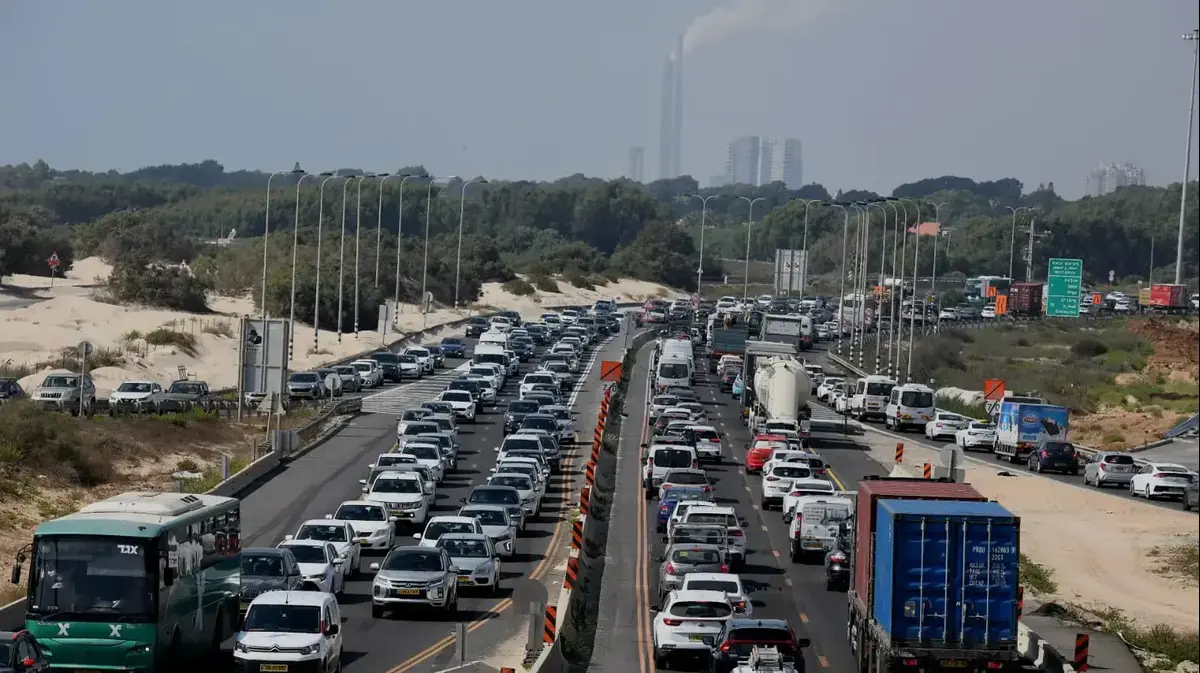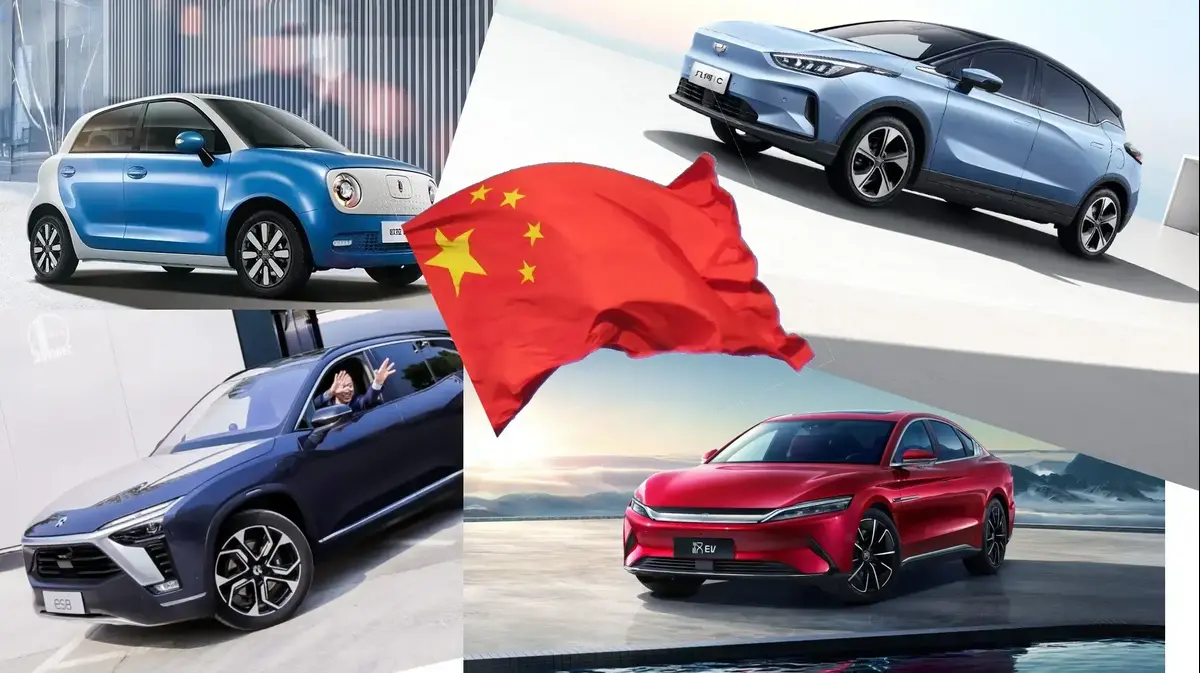The brain in neutral: Israelis attack cars
Chip crisis, price increases, shortages and long delivery times.
According to Dun & Bradstreet, the Israeli public is determined to spend money to keep up with a new car.
The state and the importers are counting the money and we will all eat it
Keenan Cohen
28/12/2021
Tuesday, 28 December 2021, 07:29 Updated: 07:35
Share on Facebook
Share on WhatsApp
Share on Twitter
Share on Email
Share on general
Comments
Comments
As of the end of 2021, there are 3.7 million vehicles in Israel, 86 percent of which are private cars, these are just some of the data from the Dun & Bradstreet report on the Israeli car market. 3.7 million cars that do not really travel anywhere, and here's another paradox Low (the number of private vehicles per 1,000 people), the traffic density in Israel is one of the highest in the world, in fact 3.5 times the OECD average
. , But it's slower than the traffic jam you've been in this morning, you'll be in it tonight and you'll be worse than him in the next 5-6 years.
More on Walla!
The corona?
A light blow on the wing: The Tax Authority's report on the Israeli car market
To the full article
The roads are blown up, the whole country is one long traffic jam, but the people of Israel storm the showrooms in waves and order cars from everything nearby.
The Israeli car market will end 2021 with more than 300 new vehicles that will hit the roads, where is the place for all these?
No one knows, after us the flood.
And if you are not one of the big, medium and even small car importers or in the case of Ministry of Finance officials you should erase that smile from the face - these new car surges, compensation for the annual vacation taken from us, vent to frustration from the endless epidemic or any other excuse to park a shiny new car - They are another fuel for the huge bonfire called the transportation failure of the State of Israel.
The bad news - it's only going to get worse.
Snatch from everything next door (Photo: Keinan Cohen)
Efrat Segev, VP of Data and Analysis at Dun & Bradstreet (Photo: Niv Kantor)
An analysis of the Israeli car market conducted by Dun & Bradstreet reveals the full picture of the most shaky year we have had in many decades. The veteran company that conducts market research and provides business intelligence and analytics has dived into local market data in 2021 and these are some of the data that emerges from its analysis.
"In the past year, we have seen a sharp increase in demand for vehicles after 2020, when the industry was affected by the Corona crisis," says Efrat Segev, VP of Data and Analysis at Dun & Bradstreet. In 2021, about 283,000 new vehicles will be delivered, with an expectation of a peak of dedication in 2021 as a whole of over 300,000 vehicles. "
Improvement?
Not according to Segev: "When the macroeconomic forecasts of the Bank of Israel and the Ministry of Finance predict continued accelerated growth in the economy in 2022, we believe the car market is expected to be characterized by extensive activity and constitute a" hot market "this year as well. "Consumers will continue to purchase and absorb the price increases and delays in the supply of vehicles."
Public transport does not offer a sufficiently attractive solution (Photo: Reuven Castro)
The Israeli has quite a few reasons to prefer to use his car.
Some are as objective as public transportation that does not provide a complete door-to-door solution for some people, companies that pre-purchase before the expected rise in price of hybrid cars.
Some are completely subjective like the perception of the car as a status symbol, self-"compensation" after two nerve-wracking years of Corona.
Some involve the two things like an increase in the standard of living that is expressed in more luxuries, low interest rates, more and more financing solutions for buying new cars and more.
This is what a failure of transport management looks like (Photo: screenshot)
And this skyrocketing demand is happening across the width and length of the car market, from private customers to car fleets and leasing and rental companies.
For example, the rental industry, which despite the lack of inbound tourism and a terrible year in 2020, found itself very busy this year.
Why?
Quite simply, he was the one who provided “bridging cars” to vehicle fleet customers whose leasing contract is over, but their new car is delayed.
But with all due respect to leasing companies the buzz word in the local market in 2021 was "electricity".
A combination of aggressive hacking of Chinese car brands, low taxation and how not Tesla's entry into Israel flew this sleepy segment, which at best scratched the percentage from below with 1,500 cars to numbers of 10,000 cars that are about 3 percent of the market.
When it's Tesla that serves as the poster girl of this revolution with about 60 percent of sales, the other brands compete over the rest of the cake.
It has also virtually made Tesla the best-selling car for private customers in Israel.
More on Walla!
Special!
Walla! Vehicle Analysis: Tesla is Israel's new bestseller
To the full article
The Chinese electricians in an aggressive assault (Photo: Keinan Cohen)
The state is the most lucrative partner in this story - it does not invest a penny in advertising budgets, does not own sales halls and service arrays - and still takes half the price of your new car in its pocket, a fantastic business
Those who are of course very pleased with the situation are the car manufacturers, the car importers and the state, they all look in amazement at the masses of buyers and do the only thing they know - maximize the profits from this demand.
The former do this by "responding" to the crazy demand, the manufacturers raise prices for importers and these roll it out to the customer.
It began with the disappearance of every trace of the promotions and discounts we unveiled here months ago, and continued to go through rounds of price increases in complete denial of the shekel's position relative to other currencies.
The state, on the other hand, is the most profitable partner in this story - it does not invest a penny in advertising budgets, does not own sales halls and service arrays - and still takes half the price of your new car in its pocket, a fantastic business. This story of new cars encompassed NIS 12 billion on importing cars and another NIS 22 billion in taxation on fuel and indirect taxation on the sale of new cars. These, together with additional taxes such as value in use, vehicle fees and more, bring in NIS 44 billion a year.
Well, then who can blame the importers for increasing profits and the country that raises the tax on hybrid cars? As for the latest move, Dun & Bradstreet very nicely described the significance of the wave of stockpiling of hybrid cars at the end of the year: To continue the profit line and not roll over to the consumer. "
Traffic, public and tram loads: this is also what will dictate the coming years (Photo: Reuven Castro, shuterstock)
We would have been happy to end this story in an optimistic tone but there really isn’t one.
Because the bad news is that the years of road neglect, of paving more and more lanes, of the new car tsunamis sweeping the roads, the traffic jams that have become increasingly difficult in the last year are all together the stew components we eat today, eat tomorrow, and probably in the next decade.
And it does not end on the roads, housing prices in Gush Dan and even in its outer rings are the clear expression of the public's lack of faith in the government's ability to move it from the periphery to business and employment centers and back home at the end of the day.
But if you still want some comfort, think about the fact that after the tax on disposable utensils and tobacco, vehicle taxation in Israel is one of the most decent and justified.
Not because the country does not deserve more money, but because when the median price of a new car in Israel is over 160,000 shekels, it should be charged from those who have to spend and not from those who buy basic consumer products such as bread, dairy, fruits and vegetables.
And since this taxation ostensibly micromanages cars and becomes "oh oh oh", it is probably the last barrier between us and a hell of transportation against which what is going on today is Yom Kippur noon in Mea Shearim.
vehicle
Car News
Tags
traffic jams
Car market
New vehicle
Traffic jams







